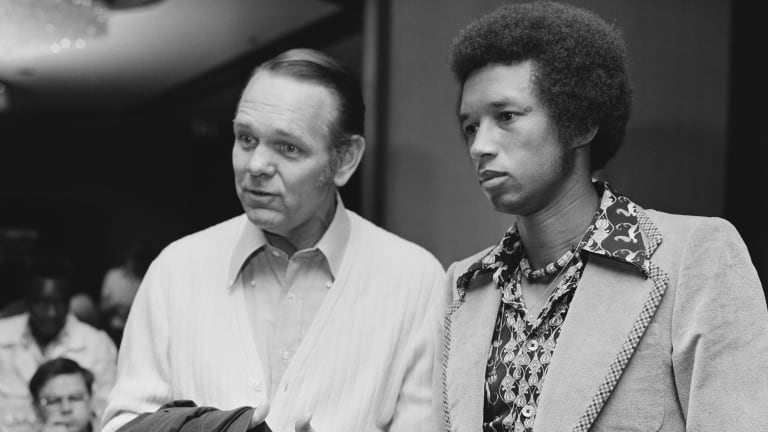Tennis Lessons
50 years later, ATP Wimbledon boycott remains major tipping point moment
By Jul 13, 2023Tennis Lessons
The burdensome bonus pool on the ATP tour, explained
By Nov 29, 2025Tennis Lessons
Working within traditional framework, tennis players made their point in 2025
By Nov 23, 2025Tennis Lessons
REVIEW: Sincaraz books capture Jannik Sinner, Carlos Alcaraz in the wake of new era-defining dominance
By Oct 24, 2025Tennis Lessons
What is the importance of stats in professional tennis?
By Oct 18, 2025Tennis Lessons
JTCC makes "Tennis for Everybody" with adaptive tennis program
By Sep 13, 2025Tennis Lessons
What is an unforced error? A meditation on the tennis player's least favorite stat
By Dec 28, 2024Tennis Lessons
The Never-Ending Serve Quest: Top players shift focus towards improved deliveries
By Feb 27, 2024Tennis Lessons
Roger Federer in primetime: TC Plus Classics to revisit 20-time Slam champ's greatest matches
By Dec 19, 2023Tennis Lessons
Winning Ugly, revisited: Brad Gilbert’s ethos returns with Coco Gauff Slam triumph
By Sep 30, 202350 years later, ATP Wimbledon boycott remains major tipping point moment
Even a half-century later, this remains tennis’ definitive labor struggle, a conflict that so significantly changed the game that it would be unimaginable these days.
Published Jul 13, 2023
Advertising

ATP Executive Director Jack Kramer (left) and Arthur Ashe at a meeting in London on June 20, 1973. The meeting ended with the decision to boycott the 1973 Wimbledon championships in protest at a ban on Croatian tennis player Nikola Pilic by the International Tennis Federation (Getty Images).
© 2012 Getty Images